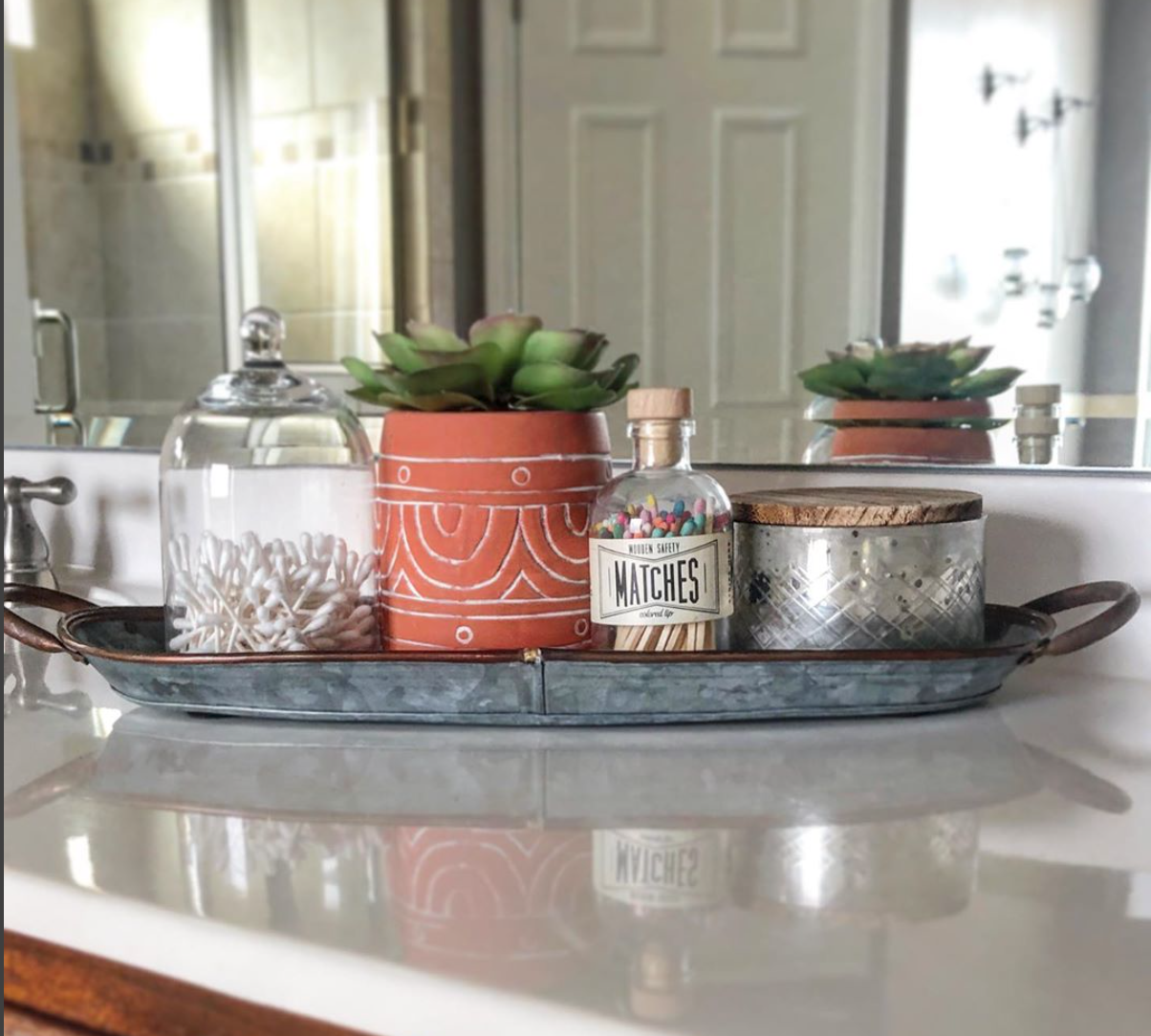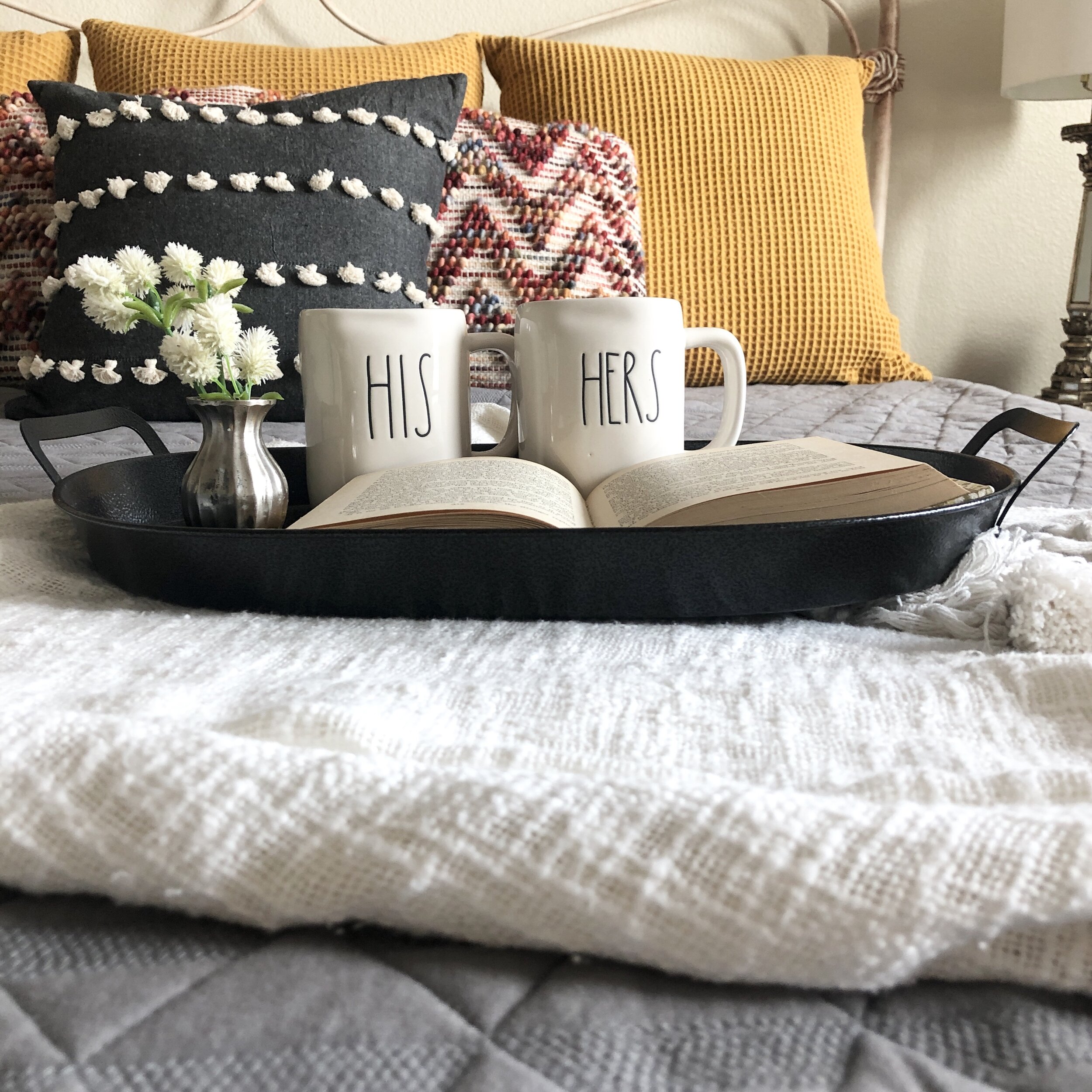One of our go-to tricks in staging is creating beautiful vignettes, or groupings of items on a flat surface. Vignettes instantly add a designer-worthy style to your home and enhance functionality of your space. All you need are a few loose items, a tray or flat surface, and these 4 tips to get started:
Use functional items to the space
In the kitchen, display various kitchen items like bowls, tea cups, or a cute pitcher together on the counter or on a cutting board. On the laundry room counter, add a jar of clothespins with a candle and plant. By adding a functional item, you are suggesting enjoyable and practical use of your space.
2. Vary height of items
Be sure to follow the high-medium-low principal when grouping items together. Use books to elevate smaller items.
3. Add an organic touch
Add a touch of greenery to give an airy and organic feel to the space. If you don’t have a free standing plant, add stems to a coffee cup, jar, or a functional item to the space.
3. Layer items to create dimension
To create depth, place your objects from the back of the flat surface to the front rather than lined up in a straight line. This will add dimension to your vignette.
4. Use odd numbers
Group items together in odd numbers. Groups of three or five have a stronger visual impact than a group of two or four.
Happy Staging!
Danielle, Lynley, and Rainie




































